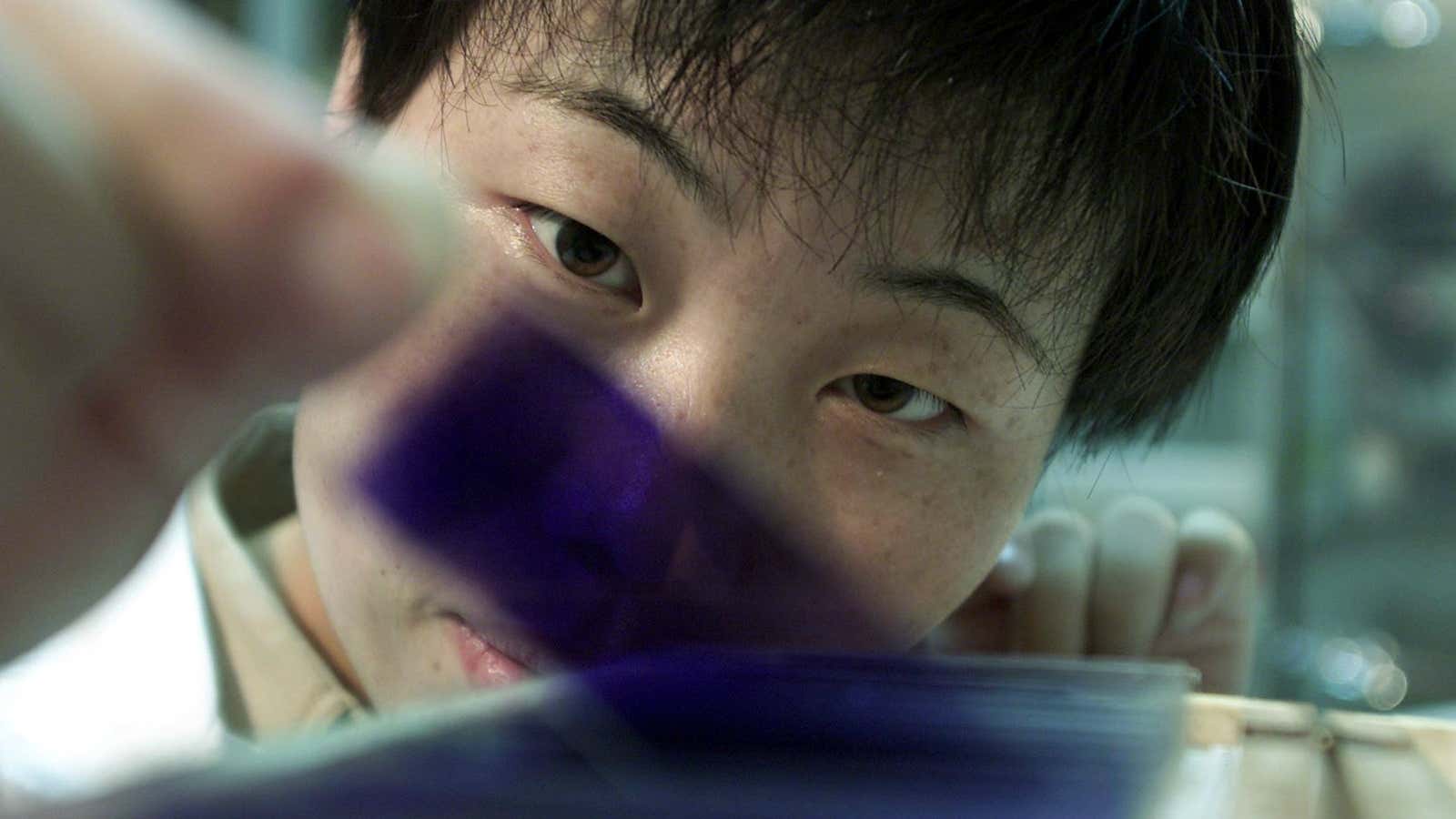A recent promotion from Alibaba’s daily deals site, Juhuasuan, could make more than 20,000 Chinese men a bit richer and as many households a lot happier.
Last week, Juhuasuan ran a two-day promotion connecting men with sperm banks offering 5,000 yuan (about $800) for donation.
According to Chinese media outlet Zhejiang Online, Juhuasuan connected with sperm banks in seven provinces looking for donations (link in Chinese). Volunteers filled out personal information including their identification number and mailing address to apply to become a donor on Juhuasuan’s app or website. Within three months time, they’ll be summoned to a local sperm bank for a full health examination. If they pass, they’ll donate and receive payment.
Over 48 hours, 22,015 men applied. The payment in the Juhuauan offer is about the going rate for sperm donation in China, but the Juhuasan’s reach (it has over 200 million users) made the idea popular.
China suffers from both rising infertility and a sperm shortage. According to a government study from 2010, 12.5% of people of childbearing age are infertile, or roughly 40 million people, up from 3% in 1990. China is home to 11 sperm banks, but according to a study from the Asian Journal of Andrology, there’s not enough to sperm to satisfy demand, in part because most donors (55%) are turned away for inadequate sperm count.
Couples committed to undergoing artificial insemination by donors must endure waits lasting 1.5 years. Meanwhile, some of China’s sperm banks are operating at half-capacity. The problem is so dire that a black market for sperm has emerged, in which women pay up to 30,000 yuan (about $4,900) for artificial insemination.
Some have speculated that environmental issues are causing low sperm count and high infertility in China. But cultural barriers have played a part in the sperm shortage as well. “In China, the notion of sperm donors serving as the genetic link between a husband and his family is often perceived to be extremely embarrassing,” write the authors of the study in the Asian Journal of Andrology.
Alibaba and Juhuasuan are probably better equipped to sell shoes than sperm. But their popularity among young and, we assume, virile Chinese consumers makes them well-suited to help publicize a pressing issue.




